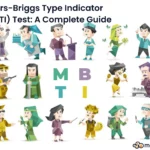
In professional life, you should be aware of your strengths and weaknesses. Being aware of your abilities and knowing your weaknesses has an important place in terms of improving yourself. You can discover your strengths in professional life with some measurement tools that are known to be reliable in their field and diversify your career opportunities by recognizing these strengths.
In the professional world where understanding your strengths can give you a professional edge, the Gallup Clifton Strengths assessment ,formerly known as Strengthsfinder, has become a game-changer for individuals and teams alike.
What is the CliftonStrengths Test?
Gallup Clifton Strengths test, a psychometric instrument created by Don Clifton who was the chairman of Gallup to aid in the identification of one’s fundamental strengths. To promote a strengths-based strategy for professional and personal growth, this test places more emphasis on your natural abilities than on your perceived shortcomings, in contrast to more traditional assessments.
With a foundation in positive psychology, the test seeks to assist people, groups, and companies in recognizing their particular strengths. Employees can work more advanced, communicate better, and accomplish more if they know their strengths.
To evaluate the participants’ innate capacities for thinking, feeling, and acting, test ask them a series of questions. Their answers will determine the order in which 34 talent themes are ranked in the report, which will shed light on their strongest suits and how to put those skills to use in the real world.
What Does the CliftonStrengths Test Measure?
The CliftonStrengths test is designed to measure your fundamental abilities that are about how you think, feel, and act.
Talents Skills and Knowledge
Differentiating between talents, abilities, and knowledge is one of the cornerstones of the Clifton Strengths testing. Individual’s qualities are natural, whereas their knowledge and abilities may be developed over time. Some people may have an innate talent for things like improving problem-solving skills or relationship-building, which the exam seeks to identify.
Patterns of Thought and Behavior
Your thoughts, feelings, and actions in many contexts can be captured by the evaluation. It finds your consistently excellent regions by measuring your repeated habits and reactions.
The 34 Talent Themes
This test categorizes your strengths into 34 talent themes based on these patterns. It can group these topics into four broad categories.
What are the 34 CliftonStrengths Themes?
The purpose of Clifton Strengths test is to find out what skills and abilities a person was given. Briefly, the test measures 34 different categories of skill through a total of 177 questions.
Executing Part in Clifton Strengths Test
This section assesses the characteristics of individuals who put their ideas into practice.
•Achiever: A relentless drive to accomplish goals.
•Arranger: The ability to organize and adapt plans efficiently.
•Belief: Driven by deeply held values and principles.
•Consistency: Prefers fairness and balance in processes.
•Deliberative: Careful decision-making and risk assessment for specified tasks.
•Discipline: Exceptional focus on structure and organization.
•Focus: Goal-oriented and highly committed to results.
•Responsibility: Takes ownership of tasks and follows through.
•Restorative: Talented at solving problems and fixing ongoing problems.
Influencing Part in Clifton Strengths Test
This section assesses the characteristics of individuals who know how to take charge and inspire others by their actions.
•Activator: Turns ideas into actions swiftly.
•Command: Confidently leads and inspires others via their actions.
•Communication: Exceptional storytelling and expression skills and also good teachers.
•Competition: Thrives on outperforming others.
•Maximizer: Focuses on refining and improving excellence.
•Self-Assurance: High confidence in decisions and abilities.
•Significance: Driven by the need to make an impact.
•Woo: Excels at building relationships quickly.
Relationship Part in Clifton Strengths Test
This section in Clifton Strengths assesses the characteristics of individuals who have the ability to communicate effectively with others. In other words, this part measures social intelligence.
•Adaptability: Comfortable with change and flexibility.
•Developer: Helps others grow and achieve their potential.
•Connectedness: Sees connections and meaning in everything.
•Empathy: Understands and connects with others’ emotions.
•Harmony: Promotes peace and avoids conflict.
•Includer: Ensures everyone feels involved and valued.
•Individualization: Believes in the uniqueness of each person.
•Positivity: Encourages enthusiasm and optimism.
•Relator: Forms deep, meaningful connections with others.
Strategic Thinking Part in Clifton Strengths Test
This section assesses the characteristics of individuals who have the ability to analyze and plan.
•Analytical: Excels at examining data and logic.
•Context: Draws lessons from the past to inform the present.
•Futuristic: Imagines and inspires others about future possibilities.
•Ideation: Generates innovative ideas and approaches.
•Input: Collects and organizes information.
•Intellection: Loves deep thinking and reflection.
•Learner: Thrives on acquiring new knowledge and skills.
•Strategic: Finds patterns and plots the best path forward.
Benefits of Having Clifton Strengths Test Results
The Clifton Strengths test, which reveals the versatile talents you have and also reveals what is weak in your abilities, brings many more benefits.
Increased Self-Awareness About Your Abilities
Being aware of your abilities enables you to adjust to them more skillfully. Gaining understanding of your natural patterns of behavior and thought will boost your self-confidence.
Better Team Communication
In a team environment, knowing each other’s strengths can help employees to collaborate better. Team members can complement each other’s abilities, leading to more cohesive and effective work.
Improved Career and Personal Development
Your strengths can guide your career choices. By aligning your work with your natural talents, you are more likely to find satisfaction and success in your job. Also, you can focus on refining your strengths. This strengths-based approach is more effective for long-term growth and happiness.


